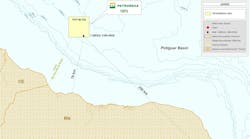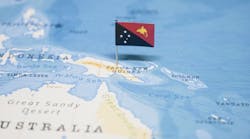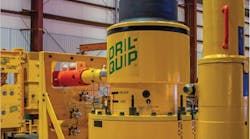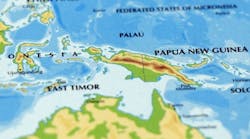It is no secret that deepwater environments around the world offer the promise of significant hydrocarbon rewards, from an economic perspective. Over the last five years almost 60% of new hydrocarbon reserves were discovered indeepwater environments.
However, in order to realize them operators must take a measured approach to projects, and ensure that operational integrity and efficiency are considered at every stage; in the same way that QHSE and regulatory responsibilities must be.
As the industry becomes increasingly familiar with working in such unforgiving conditions, attention must inevitably turn to making projects economically viable, long term, especially since the average capex required for a deepwater well is more than seven times that of an onshore well, and around triple the cost of a well in shallower waters. When you consider that deepwater capex is expected to grow by a compound annual rate of 12% until 2020, equating to a near tripling in expenditure, then the need for sound financial control is crystal clear.
To achieve consistent efficiencies, the logistical and operational risks inherent todeepwater operations must be identified and mitigated to ensure costs can be properly managed. For deepwater operations to be economically successful, they must have sound project fundamentals locked in place. To ensure this is the case for every deepwater project, we have developed four solid foundations to standardize performance in this difficult and expensive environment; and bring together the right people, management structures, and technology.
The first foundation is developing highly competent people through a dedicated deepwater competency assurance program, through which more than 2,000 employees have already passed since 2010. This process comprises training to provide the necessary technical and practical skills with special attention on well integrity barriers, and the competency and use of simulators. It delivers experience from on-the-job exposure in offshore and deepwater environments, and includes rigorous technical assessment to validate individual proficiency.
The second element is a consistent approach to deepwater planning and risk management. As a service company, we have worked closely with customers on early involvement in projects to ensure that optimal workflows and processes can be established from the outset, and that operational risks can be systematically identified and managed. The company employs a proprietary project readiness assessment (PRA) tool which considers all risks, especially those that could lead to a service quality failure, non-productive time, or damage to the customer's reputation.
The third element is reliable and optimized technology selection and deployment. In a deepwater environment, the right technology can drive significant economic benefits. For example, the use of digital models to predict drillstring behavior and optimize rate of penetration; LWD measurements for well placement that can see 360° around the well, up to 30 m (98 ft) into the formation; and real-time re-imaging of the 3D seismic model, while drilling, to identify zone depth and predict formation pressure up to 500 m (1,640 ft) in front of the bit. The drilling program can then be modified to reflect these real-time predictions, allowing the well to be drilled safely to conclusion—avoiding costly delays and problems.
Finally, the fourth foundation is an integrated services methodology to bring together the varied and multi-disciplinary services needed in deepwater operations through efficient project management. This is most effective when delivered and managed from a single point of contact working in close collaboration with an operators' project team—coordinating the required expertise and resources from planning to execution, including managing third-party suppliers. Integrated services in deepwater is a growing area, and the company has found that projects with an integrated services program benefit from 40% lower non-productive time rating, and savings on project AFEs of up to 20%.
Of course safety has been and will always be the primary consideration for deepwater operations, from both a human and environmental perspective. However, as increasing numbers of deepwater assets appear in customer portfolios, bringing additional geological, reservoir, and logistical challenges, it is important to ensure they remain economically viable, long term.
Wallace Pescarini
Vice President, Deepwater Operations
Schlumberger
This page reflects viewpoints on the political, economic, cultural, technological, and environmental issues that shape the future of the petroleum industry. Offshore Magazine invites you to share your thoughts. Email your Beyond the Horizon manuscript to David Paganie at[email protected].




